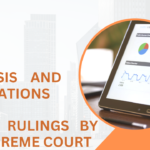Suffering an injury while working offshore can be a nightmare. Between navigating complex maritime laws and pushing back against powerful insurance companies, the deck is stacked against you from the start. But with an experienced offshore accident lawyer by your side, you can improve your chances of securing maximum compensation. This guide will provide a comprehensive overview of offshore injury claims and how a maritime lawyer can help.
Thank you for reading this post, don't forget to subscribe!What Qualifies as an Offshore Accident?
First, let’s clarify what exactly constitutes an offshore accident. Essentially, any injury that occurs on the water or at an offshore worksite could potentially lead to a legal claim. Common examples include:
- Injuries on oil rigs, cargo ships, or commercial fishing boats
- Accidents during underwater drilling or construction projects
- Falls due to slippery deck conditions
- Fires, explosions, and collisions at sea
- Exposure injuries from harsh weather or ocean conditions
The key factor is that the accident occurred within maritime or admiralty jurisdiction. Offshore accident lawyers are experts in applying maritime law to pursue injury claims.
Why Hire an Offshore Accident Lawyer?
You’re likely wondering – why do I need a special offshore injury lawyer? Why not just hire any personal injury attorney? There are a few critical reasons:
They Understand Maritime Laws and Legal Complexities
Maritime laws are notoriously convoluted. Several complex federal laws like the Jones Act and Longshore Harbor Workers Compensation Act apply to offshore accidents. An experienced offshore injury lawyer will know how to navigate this web of overlapping regulations. They can identify which laws have jurisdiction and build the strongest case under them.
They Have Resources to Investigate Your Accident
Reconstructing an offshore accident requires gathering extensive evidence like witness statements, vessel logs, weather reports, and satellite data. Personal injury lawyers rarely have the resources or know-how to secure all this. Offshore accident lawyers use top maritime experts to thoroughly investigate accidents offshore.
They Can Handle Multiparty Disputes
Offshore accidents often involve multiple negligent parties – like equipment manufacturers, vessel owners, platform operators, etc. An offshore injury attorney has the right experience to identify each party, prove their fault, and force them to pay their share.
They Understand maritime insurance intricacies
Maritime insurance has its own rules and regulations. Offshore accident lawyers know how to counter the ruthless tactics insurers use to deny or minimize claims. With an attorney fighting for you, you can maximize compensation from maritime insurance policies.
Bottom line – offshore accident cases are extremely complex and require specific maritime legal expertise. Hiring an attorney experienced in this unique field is crucial.
Do I Have a Case After an Offshore Injury?
So when exactly can you pursue an offshore injury claim? Here are some key factors that may indicate you have a valid case:
- Your injury occurred within maritime jurisdiction – This includes accidents on vessels, offshore platforms, docks, or any waters.
- Your injury was caused by negligence or wrongdoing – Like a vessel operator violating safety laws or using defective equipment. Proving fault is the crux of maritime accident claims.
- Your injury was severe – Minor first-aid level injuries likely won’t warrant a claim. Significant injuries like amputations, burns, spinal damage, or traumatic brain injuries often do.
- You weren’t at fault – Your own negligence can reduce or eliminate your claim. But offshore accident lawyers can argue the fault lies elsewhere.
- Time limit hasn’t expired – You typically have 3 years after an accident to file a claim.
If your offshore accident meets this criteria, then you likely have a strong basis for a legal claim. An offshore injury lawyer can thoroughly review your case details to advise if you should move forward. They can then handle all aspects of building and filing your claim.
How Much is My Offshore Accident Claim Worth?
Valuing an offshore injury claim depends on many unique factors. Your attorney will consider details like:
- Medical costs – All current and future expenses related to your injury, from hospital bills to physical therapy. For serious injuries, this is often the largest part of maritime claims.
- Lost income – Any wages you lose now or in the future due to being unable to work. Offshore careers pay very well, so lost income demands significant compensation.
- Pain and suffering – This accounts for less tangible impacts on your life, like physical pain, mental trauma, disfigurement, or loss of enjoyment. The exact value is highly subjective.
- Punitive damages – If negligence was truly egregious, your lawyer may pursue additional punitive damages as punishment.
An experienced offshore accident lawyer has handled many maritime cases similar to yours. They leverage past legal precedents and their negotiation skills to demand a settlement reflecting the full extent of your losses. This is critical, as insurers will lowball you or pressure you to accept less than you deserve.
With an attorney fighting for the maximum value of your offshore injury claim, you put yourself in the best position to recover what this accident really cost you.
How Much Do Offshore Accident Lawyers Charge?
The exact fees offshore injury attorneys charge can vary significantly based on factors like:
- Your accident location
- How complex your case is
- How far along your case proceeds
However, maritime lawyers typically work on a contingency fee basis. This means the lawyer only collects their fee if they secure compensation for you. Their fee is then taken as a percentage of your total settlement amount.
Standard contingency fees range from 33% to 40% of your gross settlement. But offshore accident lawyers may reduce their rates to 25% or lower in certain cases. This incentivizes them to maximize your payout.
Some additional costs may include hiring maritime experts or covering filing fees. But otherwise, contingency fees mean little upfront out-of-pocket cost to you. This lets anyone pursue justice for their offshore accident, regardless of financial means.
Why Should I Trust an Offshore Injury Lawyer?
It’s natural to be skeptical of lawyers. But when you’re weighing whether to hire an offshore accident attorney, consider these key benefits:
Legal Expertise
Highly skilled offshore injury lawyers have decades of focused maritime law experience. Their sole job is knowing these niche regulations inside and out in order to protect client’s rights. You can trust them to have mastery over even the most complex marine liability laws.
Objectivity
Emotions often run high after a serious accident. An attorney remains level-headed and acts in your best legal interest, not on feelings. Their objective view of your case keeps the process smooth and productive.
Resources
As discussed before, offshore accident lawyers have connections with maritime experts worldwide. This gives them incredible resources to build air-tight cases. A serious law firm can afford to invest extensively in winning maximum compensation for you.
Track Record
Look for a maritime law firm with a proven history of delivering results. Their past settlements and verdicts speak volumes about the quality of representation they provide. Offshore injury lawyers with a stellar reputation have earned client’s trust many times over.
Ethics & Integrity
The legal field draws all personality types, including some unsavory ones. But many maritime attorneys are passionate advocates driven by ethics and integrity. They pursue this niche practice because they truly care about helping offshore accident victims.
When you’re interviewing offshore accident lawyers, look for these qualities. A trustworthy, skilled attorney with maritime expertise can make all the difference in recovering from an offshore injury.
FAQs About Offshore Accident Claims
Who can be sued after an offshore injury?
Some potential liable parties include:
- Vessel owners and operators
- Platform owners like drilling companies
- Equipment manufacturers
- Crane operators
- Your employer if they violated safety laws
- Staffing/personnel agencies
- Government entities if public property contributed to the accident
Your attorney’s investigation will identify all negligent parties to name in your claim.
What if I was partly at fault for my accident?
Even if you sharesome liability, you can likely still recover compensation. Comparative negligence laws reduce damages proportionate to your fault. An experienced offshore accident lawyer can minimize your responsibility.
What offshore injuries lead to the largest settlements?
Amputations, severe burns, brain injuries, paralysis, and back injuries often result in the highest claim values. The most serious, permanent injuries substantiate demands for extensive compensation.
Do I have to pay taxes on my settlement?
Typically just on the portions awarded for lost wages/income. Your attorney can explain what parts of your settlement are taxable and help maximize the tax-free sections.
How long do offshore accident cases take to resolve?
Most settle within 1-2 years, but complex cases with multiple defendants can exceed this. Your lawyer works to resolve your claim as swiftly as possible while still maximizing your payout.
Summary
Suffering an offshore injury can disrupt every aspect of your life. But with an experienced maritime attorney guiding you through the intricate legal process, you can emerge with the security and care you need to heal and move forward. Whether an oil rig accident, commercial fishing vessel sinking, or another maritime incident caused your harm, understand you have legal rights. An offshore accident lawyer has the resources and grit










